1. HRMS Recognition Module Advantages: Offers lower implementation costs, better employee data integrity, fewer integration requirements, and the convenience of dealing with a single vendor.
2. Dedicated Recognition Platform Advantages: This platform specializes in employee recognition, offering advanced features, flexibility, and support tailored to enhance employee engagement and motivation. It provides a higher ROI for comprehensive recognition programs.
3. HRMS Recognition Module Disadvantages: It is primarily designed for broad HR functions, with recognition being one of many modules. It offers simplicity but potentially lacks specialized recognition features
While setting up their employee rewards and recognition programs, organizations often face the dilemma of choosing between the recognition module of their HRMS platform and specialized recognition software.
Most organizations today use HR Management Systems or HRMS to manage employee data and HR-related processes.
There are three primary functions of HRMS platforms:
1. Data Management
2. Transaction Management
3. Reporting and Analytics
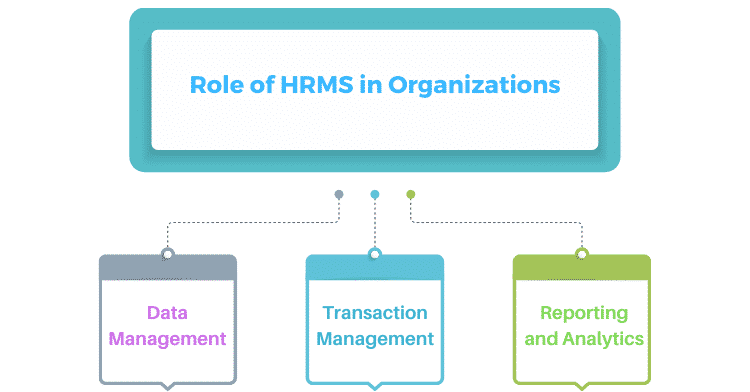
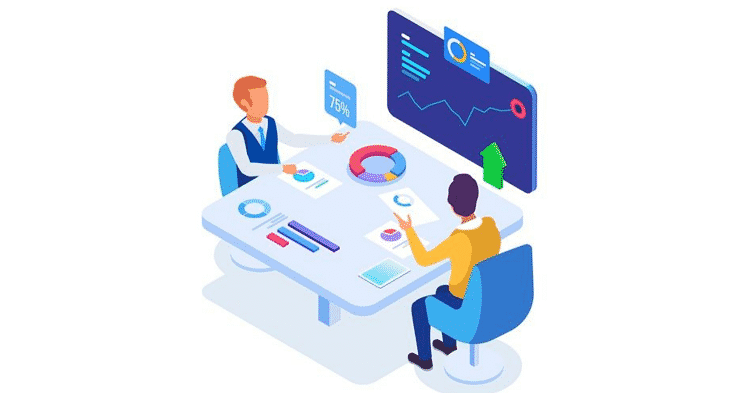
The HRMS is often the system of record for employee data and stores the updated details of every employee.
This could range from personal information like name, date of birth, and home address to official information like designation, pay grade, date of joining, department, reporting manager, etc.
These systems also enable updating the details of any employee in the organization and maintaining a history of any changes made over time.
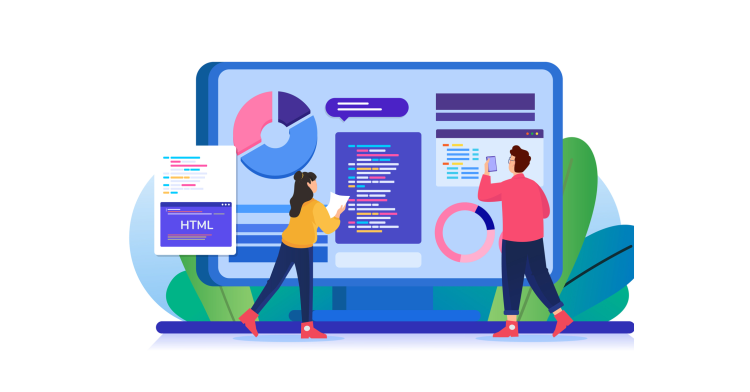
HRMS helps in digitizing and automating a large number of HR processes, such as:
1. Recruitment/ Application Tracking
2. Onboarding and Off-boarding
3. Payroll Processing
4. Attendance and Time Management
5. Leave Management
6. Performance Management
7. Employee Recognition
8. Benefits Management
9. Employee Helpdesk
10. Employee Self-Service
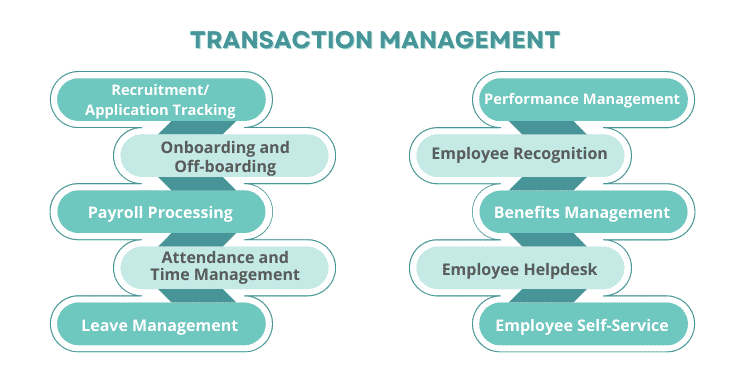
HRMS has different modules catering to multiple processes; all modules can be used together, or only specific modules can be enabled as required.
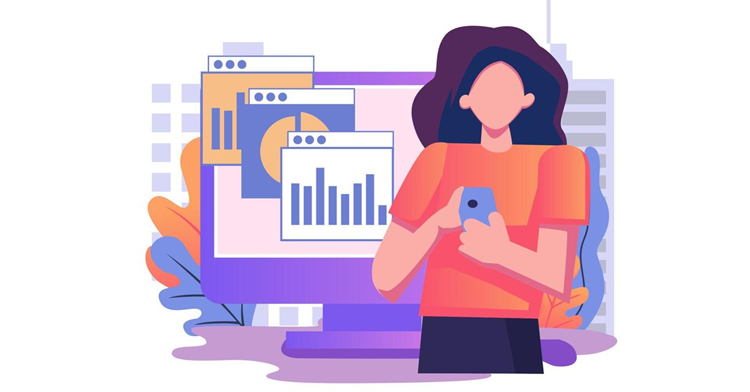
HRMS has robust reporting and analytics capabilities.
They have numerous dashboards and pre-configured reports that enable HR/ management to track critical people metrics.
These metrics would include hiring, retention/ attrition, performance, productivity, etc. at an organization, department/ division, team/supervisor, and individual employee levels.
HRMS are robust tools that power the HR data and processes within organizations. They may also allow ad hoc reports and queries required for decision-making.
They are the basic building blocks for the digital workplace concept that most organizations are focused on building.
Popular HRMS include SuccessFactors, Workday, Oracle Cloud HCM, Darwinbox, PeopleStrong, etc.
Read: 7 Ways HR Software Can Support Your Remote Workers

An employee recognition platform is a specialized software platform that enables organizations to reward and recognize members of their workforce systematically.
The platform enables managers and supervisors to reward their team members’ excellent performance in a timely and structured manner.
It also enables peers to appreciate each other’s good work and acknowledge any support or help they may have received.

Employee recognition platforms help organizations reward and recognize employee actions and behavior that are in alignment with the organization’s business goals and core values.
The key features of an employee recognition platform are listed below:
1. Supports different types and methods of recognition that are part of the organization’s rewards and recognition policy
2. Enables approvals for specific reward requests and budget management
3. Supports both monetary and non-monetary forms of recognition. There might be various options for financial rewards.
4. Can be effectively integrated with other workplace platforms such as HRMS
5. Enables effective communication of the rewards and recognition with the organization (and even outside)
6. A good employee recognition software is easy to set up, configure and use
Popular employee recognition platforms include BlueBoard, Vantage Circle, Nectar, HiFives, Kazoo, Xoxoday, Bonusly, etc.
Using HRMS for rewarding and recognizing employees can prove advantageous over specialized recognition platforms in the following ways:
1. Lower Total Costs of Implementation
2. Fewer Integration Requirements
3. Employee Data Integrity is likely to be Better
4. Need to Deal only with a Single Vendor
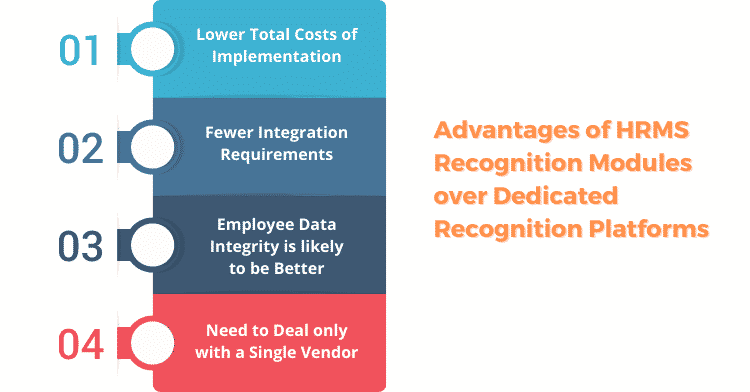

HRMS covers a wide range of HR functions, from employee onboarding, payroll, leave management, and employee recognition through different modules.
Since organizations use multiple modules of the HRMS, the ‘per module’ costs might be lower than that of implementing separate and dedicated employee recognition software.

Unlike a specialized recognition platform, the different HRMS modules are already integrated.
Hence, employee data is readily available for the recognition module within the HRMS, making the process more seamless and practical.
Even data from other modules, such as performance management, time and attendance, and learning management modules, are much more readily available to the recognition module than a separate recognition software.
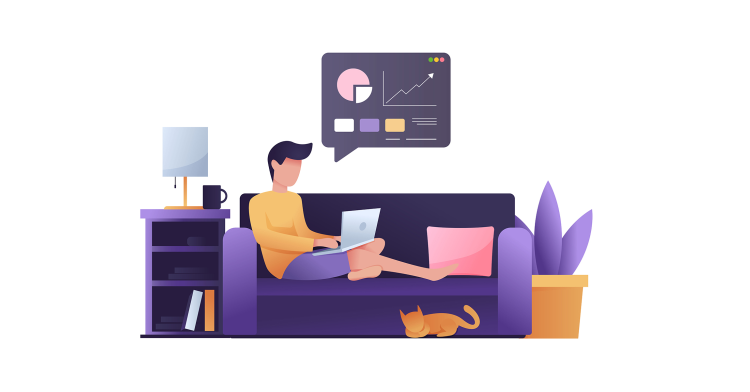
Since the HRMS is generally the system of record for employee data, any changes in the data, such as entry, exit, or reporting structure changes, are available to the recognition module in real time.
Hence, using the HRMS recognition module ensures higher integrity of employee data.
Compare this with separate recognition software dependent on data coming through integration with the HRMS and might be impacted by delays or errors.
Such issues might harm the entire process of recognition.

One of the most significant benefits of using HRMS to reward and recognize employees is that it requires organizations to deal with a single vendor.
This simplifies procurement, billing, payment, vendor management, and other business processes.
It also ensures no coordination issues while dealing with multiple vendors, especially on data and integration.
Specialized and dedicated software for employee recognition programs offers the following benefits over HRMS recognition modules:
1. Best-in-Class Features
2. Industry Best Practices
3. Pre-Built Integration with Popular HRMS
4. Suitable for Global Organizations
5. Vendor Support for Program Design
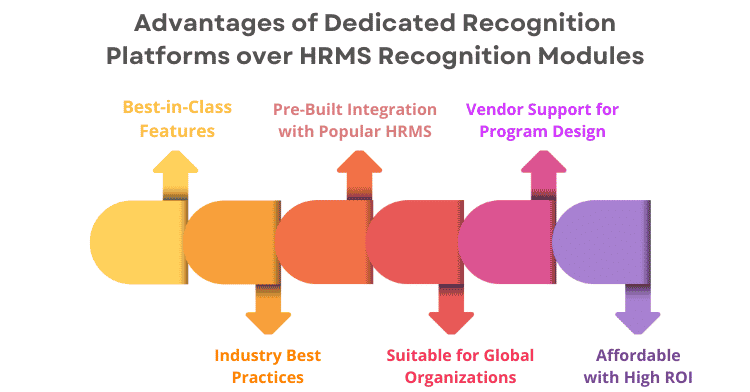

Specialized recognition platforms offer the advantage of best-in-class features and functionalities as they are designed based on significant vendor expertise and experience, specific to the rewards and recognition domain.
The platforms would typically consider different use cases and scenarios that might be prevalent in organizations in various industries and with varying workforce sizes.
This is in contrast to the ‘one-size-fits-all’ strategy that HRMS vendors might adopt. For them, recognition is one of the platform’s many modules.
Also read: Top 10 Reasons for Customizing an Employee Recognition Program

Recognition platforms are designed keeping in mind the industry’s best practices of rewards and recognition.
Their features are based on the experiences of multiple organizations that use them as part of their programs.
This ensures better results and enhances employee engagement, happiness, and satisfaction.
Read: 9 Key Points for a Successful Employee Rewards Program
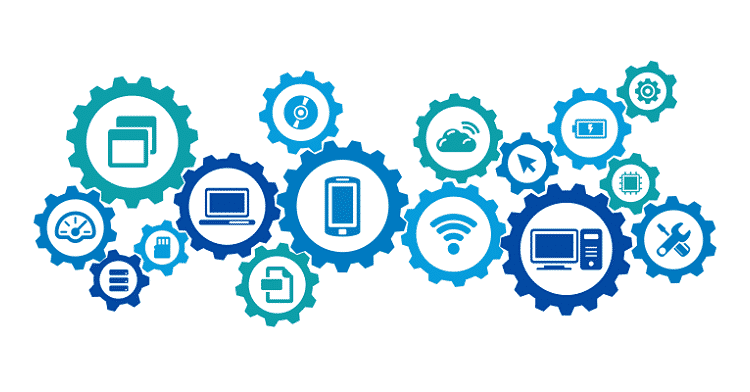
Recognition platform vendors know the need to integrate their platforms with the existing HRMS systems.
Hence, they have pre-built connectors with most of the popular HRMS that be configured quickly with minimal effort.
Such connectors help in reducing the cycle time for implementation and any potential data issues in the future.

Specialized recognition platforms tend to be better suited for businesses operating globally as they can be easily tailored to the specific employee recognition needs of a particular country or region.
Countries or regions often restrict HRMS platforms as they need to comply with relevant labor laws.
Hence, a global organization might have multiple HRMS platforms across different locations, but a single recognition platform can be integrated with the different HRMS platforms.

Rewards and recognition programs must be tailored based on the unique needs of the organization and its workforce.
These programs should also incorporate industry best practices.
A specialized recognition platform vendor is better suited to provide support and advice for designing an employee rewards and recognition policy due to their strong expertise and experience in this domain.
The vendor would also understand a program’s critical success factors and the typical implementation challenges.
Read: A Step-by-Step Guide on How to Set up an Employee Recognition Program

A well-designed and implemented employee recognition program can generate significant returns on investment for the organization.
A good program can help organizations more effectively align employee performance with their business goals and employee behavior with their core values and culture.
Hence, the investment in a specialized and dedicated recognition platform that powers such a program would be better justified for the organization.
This is our take:
Organizations should look beyond the debate of HRMS Recognition Module versus Recognition Platform and focus on selecting a platform based on their specific needs and expected benefits from employee recognition.

Lead author: Sagar Chaudhuri, the Co-Founder and CEO of HiFives. He is an HR Tech Evangelist with over 25 years of corporate and entrepreneurship experience. In the past, Sagar has worked in leadership roles with companies such as Genpact, Infosys, and ICICI Bank. He has an engineering degree from IIT Kharagpur and an MBA from IIM Lucknow. Connect on LinkedIn
To stay updated on the latest HiFives blogs, follow us on Twitter (@MyHiFives)